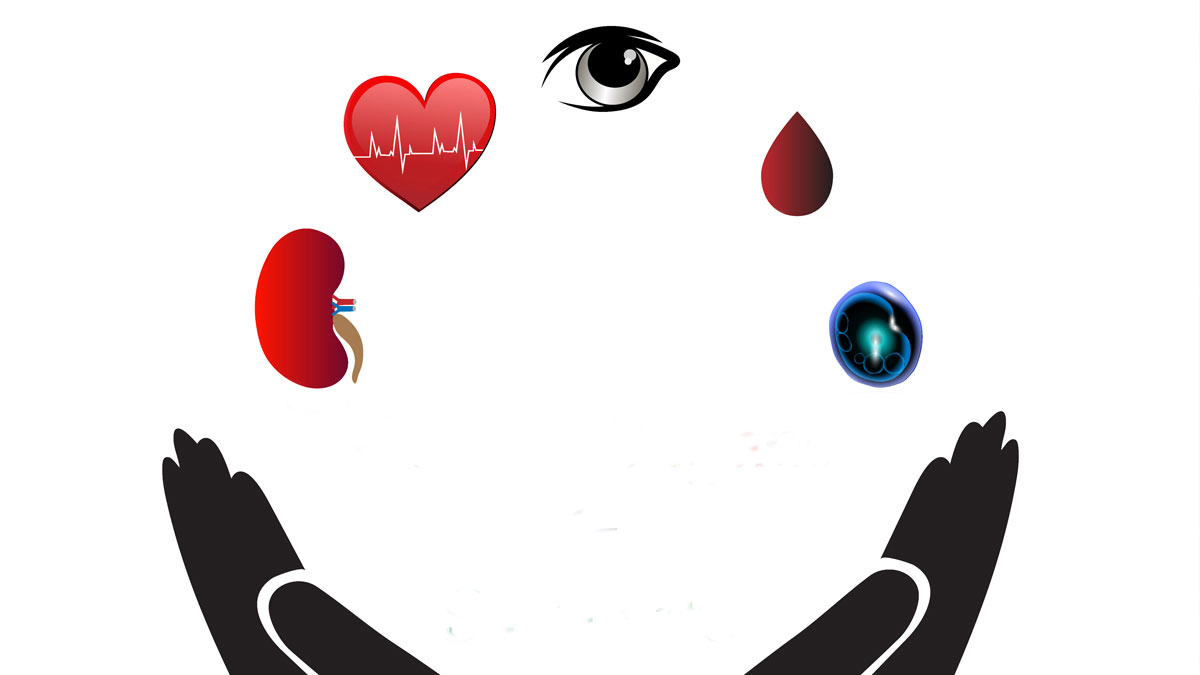No one wants to think about the inevitable end of life. While we know we won’t live forever, many of us are consoled by the idea that we will leave the world a bit better than before and that our memory will remain in the lives of the people we touched. There are many ways to leave your mark on the world, of course, but perhaps one of the most rewarding is knowing that your organs and tissues may help someone else live longer and enjoy a higher quality of life after you pass.
Organizations such as We Are Sharing Hope SC want more people to have that opportunity by becoming organ donors.
“Organ and tissue donation is a true gift to those who are awaiting a second chance, and it also allows us the opportunity to honor the legacies of those who become heroes to others,” said Dave DeStefano, the chief executive officer of We Are Sharing Hope SC. “Donation creates a ripple effect that will long impact our communities and touch lives we may never know.”
The organs that can be transplanted are the heart, two lungs, two kidneys, pancreas, liver and small intestines. That means that one donor has the potential to give eight organs to people who need them.
“You just have to look to recognize the incredible impact that one person can have,” said We Are Sharing Hope SC Director of Communications Kristine Neal. “It’s an amazing testament to that hero’s gift.”
Fewer than 2% of registered donors will actually be able to donate an organ, since the person who passes has to be on a ventilator for the organs to be viable for transplantation. That means those who are able to donate organs are typically brain dead while their organs are still on machine support.
“One of the things that we remind our community is that if you’re able to donate even one organ you’re still a hero and you’re able to save one life,” Neal said. “Tissue donation can heal up to 75 lives. So by registering and making that decision, you have the ability to save up to 100 lives.”
Many people don’t realize that more than just vital organs can be donated. Tissue donation can give skin, blood vessels, tendons and heart valves to those in need as well. Skin and blood vessels often go to help heal burn victims and patients with bone cancer, while heart valves go to pediatric patients with cardiac issues.
There currently are 110,838 people on waiting lists for organs nationally, and 1,195 of those are in South Carolina. The mission of We Are Sharing Hope is to offer hope and change to as many of those lives as possible through the gift of organ and tissue donation, Neal said.
Supporting Donor Families
Of course, when someone dies, their loved ones often are devastated and have a lot of healing to do themselves. That’s why We Are Sharing Hope SC has programs for donor families, too. The organization has an entire department devoted to supporting those families. Donor Family Services provides grief support, family gatherings and coordinates meetings with recipients of their loved one’s organ.
“We want to make sure our families have opportunities to connect with others,” Neal said. “It’s an opportunity to continue saying their name, honoring the gift, to potentially meet recipients and get to know others who have gone through that loss and found that silver lining in organ donation.”
Living Donors – Kidney Donations
While many people think that registering to be a donor means their organs will be donated after they’ve passed, they actually can give someone a kidney while they are still alive. After all, you only need one, and among all those in need of organs, the kidney transplant waiting list is the longest both in South Carolina and nationwide.
“It’s an opportunity for us to reduce that waiting list because we have the potential to do that while we are still alive to make a significant difference in the number of people waiting for an organ,” Neal said.
How to Become an Organ or Tissue Donor
Whether you donate a kidney while you are still alive or register to donate an organ or tissue after you die, it’s a selfless act that recipients and their families will remember and appreciate as long as they live.
There are several ways to become a registered donor, including at your Department of Motor Vehicles or by visiting www.DonateLifeSC.org. You can also go to www.SharingHopeSC.org for more information or to schedule an educational presentation in your community.
By Erica Rodefer Winters








